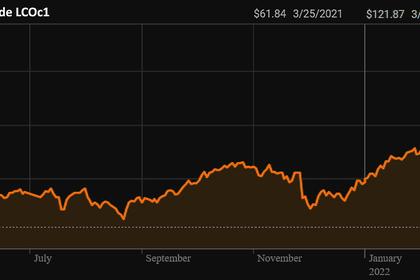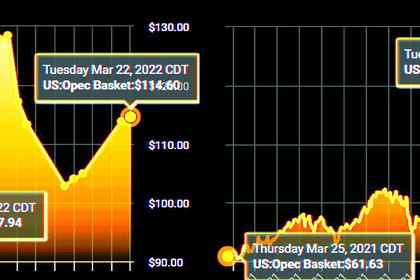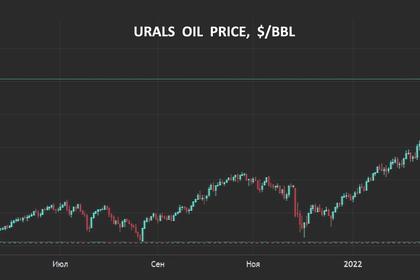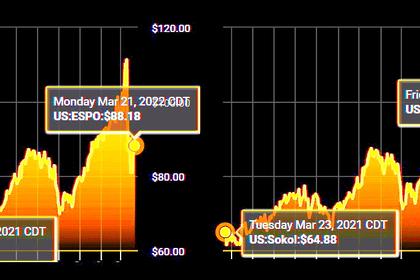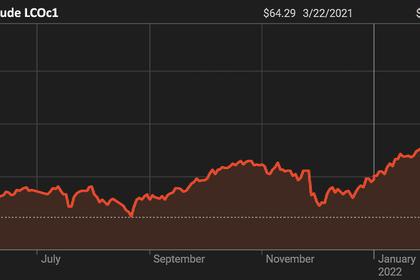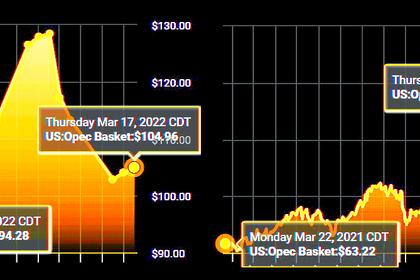
OIL PRICE: BRENT BELOW $118, WTI BELOW $111
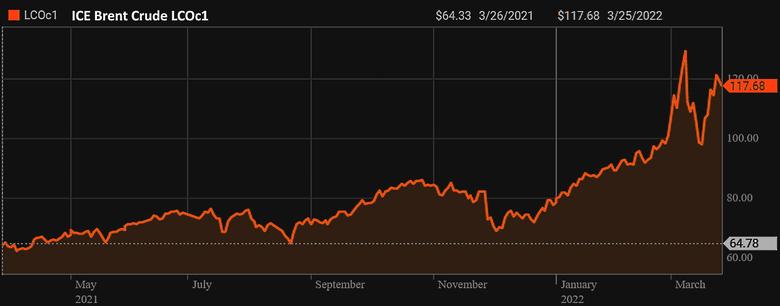
REUTERS - March 25 - Oil prices inched lower on Friday as supply concerns eased as countries in the European Union remained split on imposing an oil embargo on Russia while the United States and allies considered releasing more oil from storage to cool markets.
Brent crude futures fell 46 cents, or 0.4%, to $118.57 a barrel at 0529 GMT, after sliding 2.1% in the previous session.
U.S. West Texas Intermediate (WTI) crude futures fell 47 cents, or 0.4%, to $111.87 a barrel, having dropped 2.3% in the previous session.
Both contracts were headed for their first weekly gains in three weeks, with Brent on track for a 10% jump and WTI on course for a 7% rise amid broader fears of a supply crunch as the EU mulled a boycott of Russian oil earlier in the week.
OPEC sources said that officials believe a possible European Union ban on oil from its partner Russia would hurt consumers and that the group has conveyed its concerns to Brussels.
While the United States and Britain have targeted Russian oil, such an action poses a challenge for the EU, which relies on Russia for 40% of its gas.
Punitive measures against Russia were imposed since its invasion of Ukraine last month, which Moscow calls a "special operation".
With global stockpiles at their lowest since 2014, analysts said the market remains vulnerable to any supply shock.
"You're continuing to erode inventories. That implies, on current settings, the market continues to be tight," said National Australia Bank commodities analyst Baden Moore.
Supply concerns also heightened after the Caspian Pipeline Consortium (CPC) terminal on Russia's Black Sea coast stopped exports on Wednesday after being damaged by a major storm.
Kazazkstan said on Thursday it expects the CPC to resume shipping crude within a month, but added it may reroute some oil towards tankers on the Caspian Sea and pipelines going to Russia's Samara and to China.
Reflecting the market's volatility, the Intercontinental Exchange raised margins for Brent futures by 19% for the May contract as of Friday, marking the third rise this year and making it more expensive to trade.
Futures margin rates are hiked when markets are volatile, forcing traders to increase the deposit they hold at the exchange for each contract to prove they can deliver on their obligations.
Helping ease prices, the United States and its allies were discussing a possible further coordinated release of oil from storage, U.S. energy secretary Jennifer Granholm said on Thursday.
Separately, the United States was set to unveil a deal on Friday to supply Europe with more U.S. liquefied natural gas (LNG) for this year and next, sources familiar with the matter told Reuters.
-----
Earlier:
